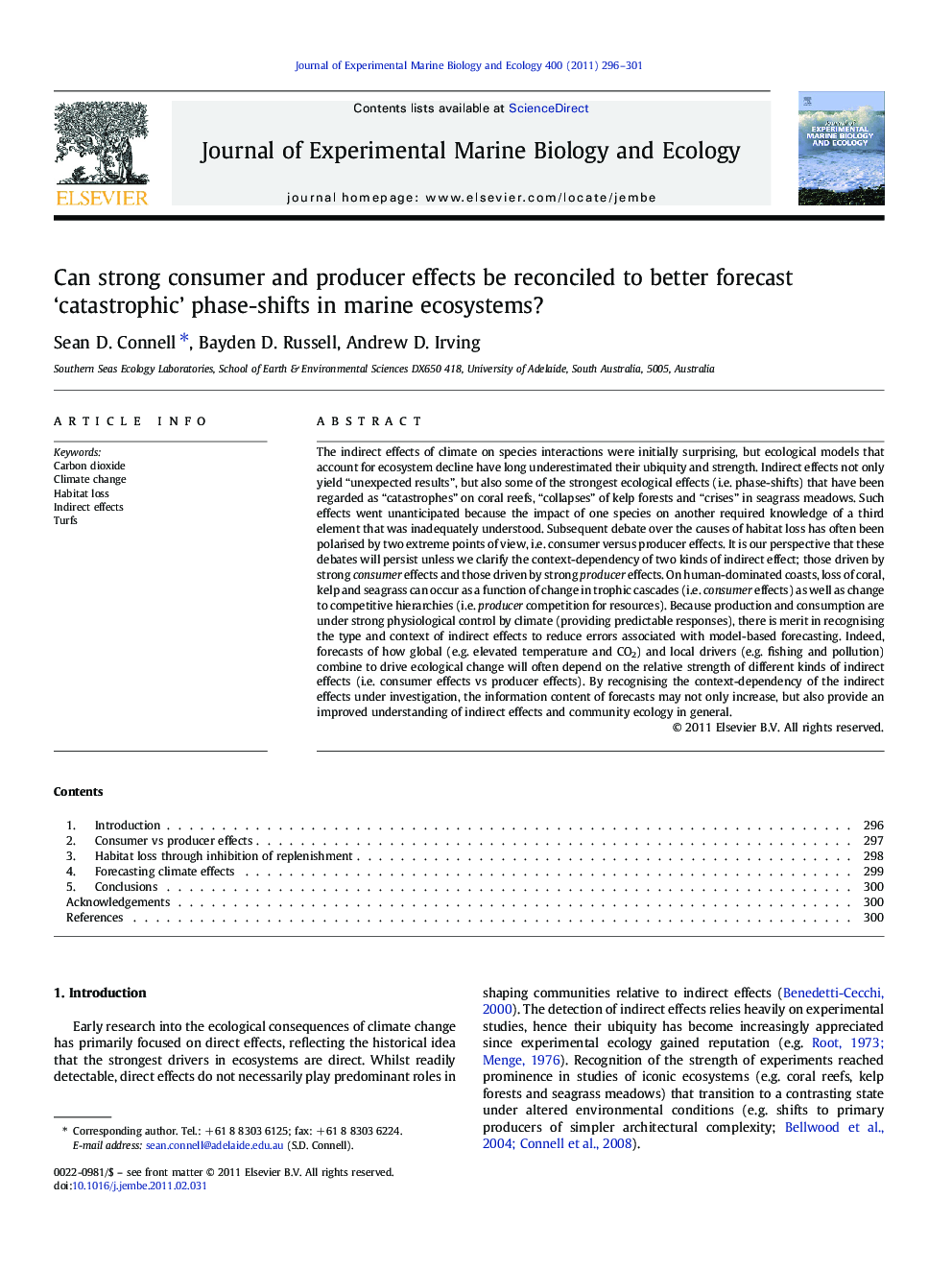| کد مقاله | کد نشریه | سال انتشار | مقاله انگلیسی | نسخه تمام متن |
|---|---|---|---|---|
| 4396359 | 1618463 | 2011 | 6 صفحه PDF | دانلود رایگان |

The indirect effects of climate on species interactions were initially surprising, but ecological models that account for ecosystem decline have long underestimated their ubiquity and strength. Indirect effects not only yield “unexpected results”, but also some of the strongest ecological effects (i.e. phase-shifts) that have been regarded as “catastrophes” on coral reefs, “collapses” of kelp forests and “crises” in seagrass meadows. Such effects went unanticipated because the impact of one species on another required knowledge of a third element that was inadequately understood. Subsequent debate over the causes of habitat loss has often been polarised by two extreme points of view, i.e. consumer versus producer effects. It is our perspective that these debates will persist unless we clarify the context-dependency of two kinds of indirect effect; those driven by strong consumer effects and those driven by strong producer effects. On human-dominated coasts, loss of coral, kelp and seagrass can occur as a function of change in trophic cascades (i.e. consumer effects) as well as change to competitive hierarchies (i.e. producer competition for resources). Because production and consumption are under strong physiological control by climate (providing predictable responses), there is merit in recognising the type and context of indirect effects to reduce errors associated with model-based forecasting. Indeed, forecasts of how global (e.g. elevated temperature and CO2) and local drivers (e.g. fishing and pollution) combine to drive ecological change will often depend on the relative strength of different kinds of indirect effects (i.e. consumer effects vs producer effects). By recognising the context-dependency of the indirect effects under investigation, the information content of forecasts may not only increase, but also provide an improved understanding of indirect effects and community ecology in general.
Research Highlights
► Recognising ecosystem dysfunction as an imbalance between consumer–producer effects.
► Ecosystem collapse as a loss of balance between rates of production and consumption.
► The context of indirect effects controls the mechanisms of ecosystem dysfunction.
Journal: Journal of Experimental Marine Biology and Ecology - Volume 400, Issues 1–2, 30 April 2011, Pages 296–301